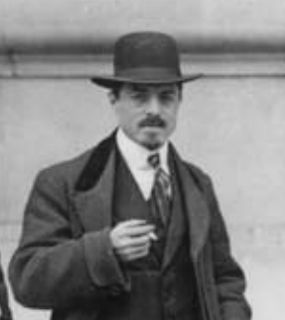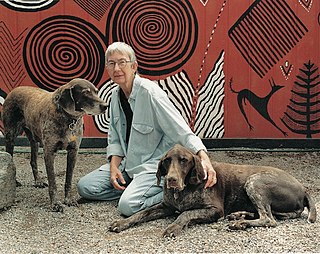A Quote by Ivan Illich
Traditional society was more like a set of concentric circles of meaningful structures, while modern man must learn how to find meaning in many structures to which he is only marginally related. In the village, language and architecture and religion and work and family customs were consistent with one another, mutually explanatory and reinforcing. To grow into one implied a growth into others.
Related Quotes
I think the structures of exclusion are more systematically built up in American society, for example, so that young girls interested in science eventually lose their confidence over time. The structures of exclusion work against them. We have other structures of exclusion in India, but not around modern scientific knowledge.
Human physical structures and intellectual structures are generally studied in different ways. The assumption is that physical structures are genetically inherited and intellectual structures are learned. I think that this assumption is wrong. None of these structures is learned. They all grow; they grow in comparable ways; their ultimate forms are heavily dependent on genetic predispositions.
Do the structures of language and the structures of reality (by which I mean what actually happens) move along parallel lines? Does reality essentially remain outside language, separate, obdurate, alien, not susceptible to description? Is an accurate and vital correspondence between what is and our perception of it impossible? Or is it that we are obliged to use language only in order to obscure and distort reality -- to distort what happens -- because we fear it?
The farmers markets were another step to giving people an opportunity to take more power over their own lives-and also to provide another outlet for organic produce. That is important because the production and distribution of food is increasingly being monopolized and controlled by large corporate structures, large financial structures.
The most important thing is that man should be the measure of all structures, including economic structures, and not that man be made to measure for those structures. The most important thing is not to lose sight of personal relationships - i.e., the relationships between man and his co-workers, between subordinates and their superiors, between man and his work, between this work and its consequences.
I think what is being pointed out by African-Americans is that from slavery forward they have been living in a supposed democracy which treats them as less than other citizens, less than whites in the society. And I think that pointing out that there are structures of discrimination in the society, deeply rooted racist structures, that segregate housing, that send black children to ill-equipped schools, that discriminate in the workplace - these are truths about our society that must be faced.
When we talk of architecture, people usually think of something static; this is wrong. What we are thinking of is an architecture similar to the dynamic and musical architecture achieved by the Futurist musician Pratella. Architecture is found in the movement of colours, of smoke from a chimney and in metallic structures, when they are expressed in states of mind which are violent and chaotic.
Human artifacts not only include material structures and objects, such as buildings, machines, and automobiles, but they also include organizations, organizational structures like extended families . . . tribes, nations, corporations, churches, political parties, governments, and so on. Some of these may grow unconsciously, but they all originate and are sustained by the images in the human mind.
To recognize that mystery, we must go down deep into ourselves, into that place where the walls of our being are layered with our own memories. Remember that, as in any pool, when we cast one pebble we will see many, many concentric circles. One memory begets another and then another, building into stories.
The enormous social change involved in a sexual revolution is basically a matter of altered consciousness, the exposure and elimination of social and psychological realities underlying political and cultural structures. We are speaking, then, of a cultural revolution, which, while it must necessarily involve the political and economic reorganization traditionally implied by the term revolution, must go far beyond this as well.
Wholeness is sort of a dubious concept. Because in terms of the human body and literal wholeness and structures, you think: "here are the structures that help make me whole." Family, or school, or the city I live in. When those structures are dysfunctional or decaying, you end up kind of Frankensteining pieces from everywhere in order to make yourself sated and comfortable and alive.
Most of us lead far more meaningful lives than we know. Often finding meaning is not about doing things differently; it is about seeing familiar things in new ways. When we find new eyes, the unsuspected blessing in work we have done for many years may take us completely by surprise. We can see life in many ways: with the eye, with the mind, with the intuition. But perhaps it is only those who speak the language of meaning, who have remembered how to see with the heart, that life is ever deeply known or served.





































